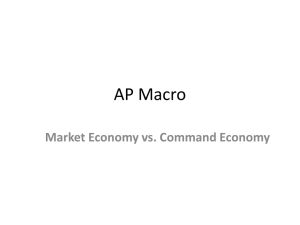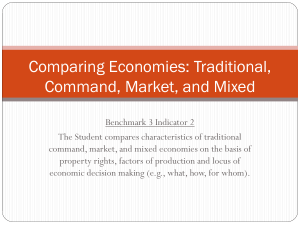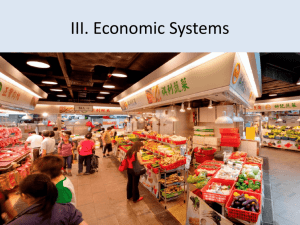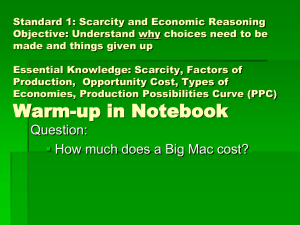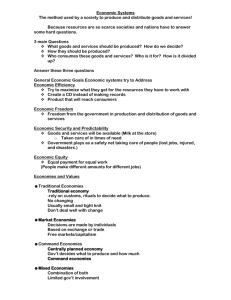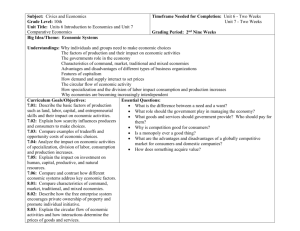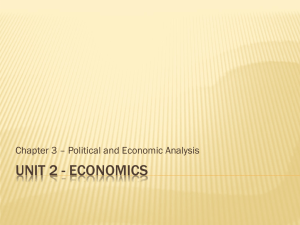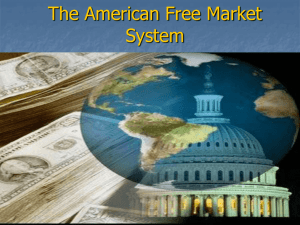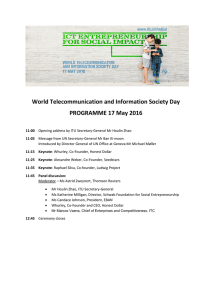123 Anywhere Street Anywhere Town, State 72944 March 4, 2013
advertisement
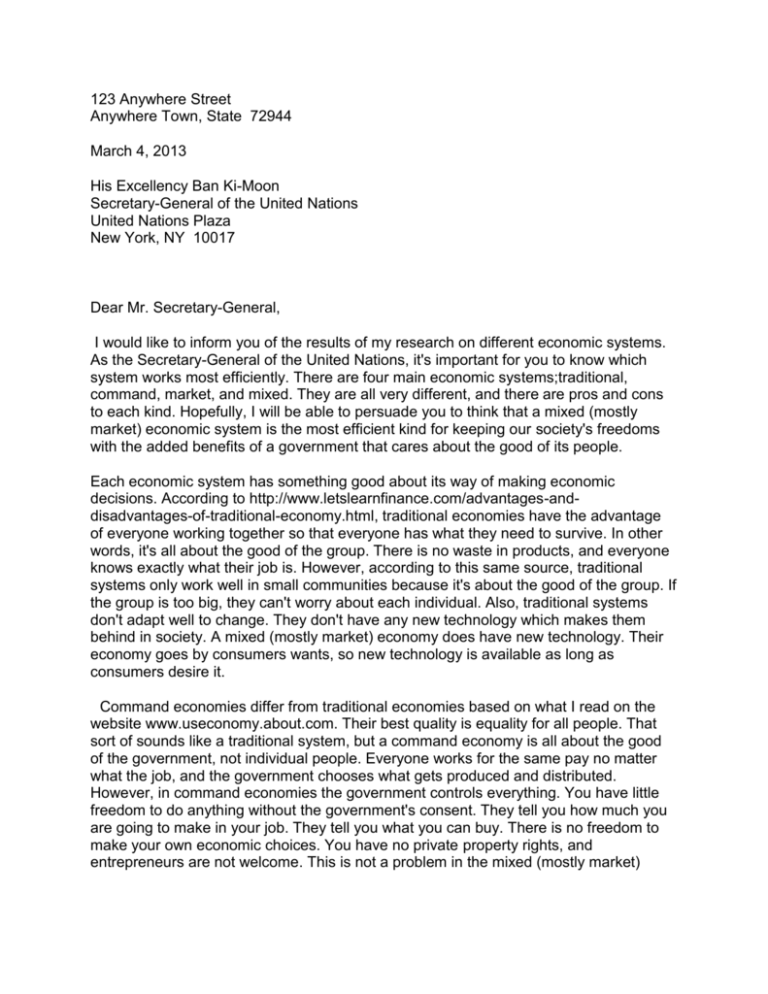
123 Anywhere Street Anywhere Town, State 72944 March 4, 2013 His Excellency Ban Ki-Moon Secretary-General of the United Nations United Nations Plaza New York, NY 10017 Dear Mr. Secretary-General, I would like to inform you of the results of my research on different economic systems. As the Secretary-General of the United Nations, it's important for you to know which system works most efficiently. There are four main economic systems;traditional, command, market, and mixed. They are all very different, and there are pros and cons to each kind. Hopefully, I will be able to persuade you to think that a mixed (mostly market) economic system is the most efficient kind for keeping our society's freedoms with the added benefits of a government that cares about the good of its people. Each economic system has something good about its way of making economic decisions. According to http://www.letslearnfinance.com/advantages-anddisadvantages-of-traditional-economy.html, traditional economies have the advantage of everyone working together so that everyone has what they need to survive. In other words, it's all about the good of the group. There is no waste in products, and everyone knows exactly what their job is. However, according to this same source, traditional systems only work well in small communities because it's about the good of the group. If the group is too big, they can't worry about each individual. Also, traditional systems don't adapt well to change. They don't have any new technology which makes them behind in society. A mixed (mostly market) economy does have new technology. Their economy goes by consumers wants, so new technology is available as long as consumers desire it. Command economies differ from traditional economies based on what I read on the website www.useconomy.about.com. Their best quality is equality for all people. That sort of sounds like a traditional system, but a command economy is all about the good of the government, not individual people. Everyone works for the same pay no matter what the job, and the government chooses what gets produced and distributed. However, in command economies the government controls everything. You have little freedom to do anything without the government's consent. They tell you how much you are going to make in your job. They tell you what you can buy. There is no freedom to make your own economic choices. You have no private property rights, and entrepreneurs are not welcome. This is not a problem in the mixed (mostly market) economy. In this economy the government is little more than a protector who cares about you. They do not try to control your life. In a market economy the greatest advantage is that consumers and producers decide all economic decisions, and businesses stay current for competition. Http://www.nyu.edu/projects/ollman/docs/china_speech2.php said, "Competition between different firms leads to increased efficiency, as firms do whatever is necessary (including laying off workers) to lower their costs". Production increases because producers all try to find the cheapest way to make what consumers want. This can be good, but it also means that in a market economy, the economy is all about making money. Because of this, businesses are more interested in making a profit than in making products the consumers need. Also, there is little to no government regulation, so people will try to make an unfair trade that helps them make money. There is usually an overproduction of goods, and this is a huge waste of raw materials. In a mixed (mostly market) economy, the government has a larger part in the economy. They protect you from an unfair voluntary exchange, and they make sure there is not too much of an overproduction of goods. This helps the economy move smoother and work more efficiently. Lastly, on http://benefitsandadvantages.com/general/advantages-of-mixedeconomy.html, it said that in a mixed (mostly market) economy, the greatest advantage is consumer sovereignty with government protection. This means that the consumer makes all the economic decisions and can own private property, but the government makes rules and regulations to protect and help you. This allows you to have a lot of the advantages of the other systems without all of the disadvantages. The government helps and protects you, but the consumers and producers still decide what gets made. This is an efficient way that decreases waste of products but still encourages creative entrepreneurs and owning private property. In conclusion, a mixed (mostly market) economy is the most efficient economy for society. There are positive points to all four economic systems, but in all, a mixed (mostly market) economy has the best qualities of each without as many negatives. I hope I have persuaded you to believe that a mixed (mostly market) economy is the most efficient for society. Yours sincerely, Ashton Last name here
